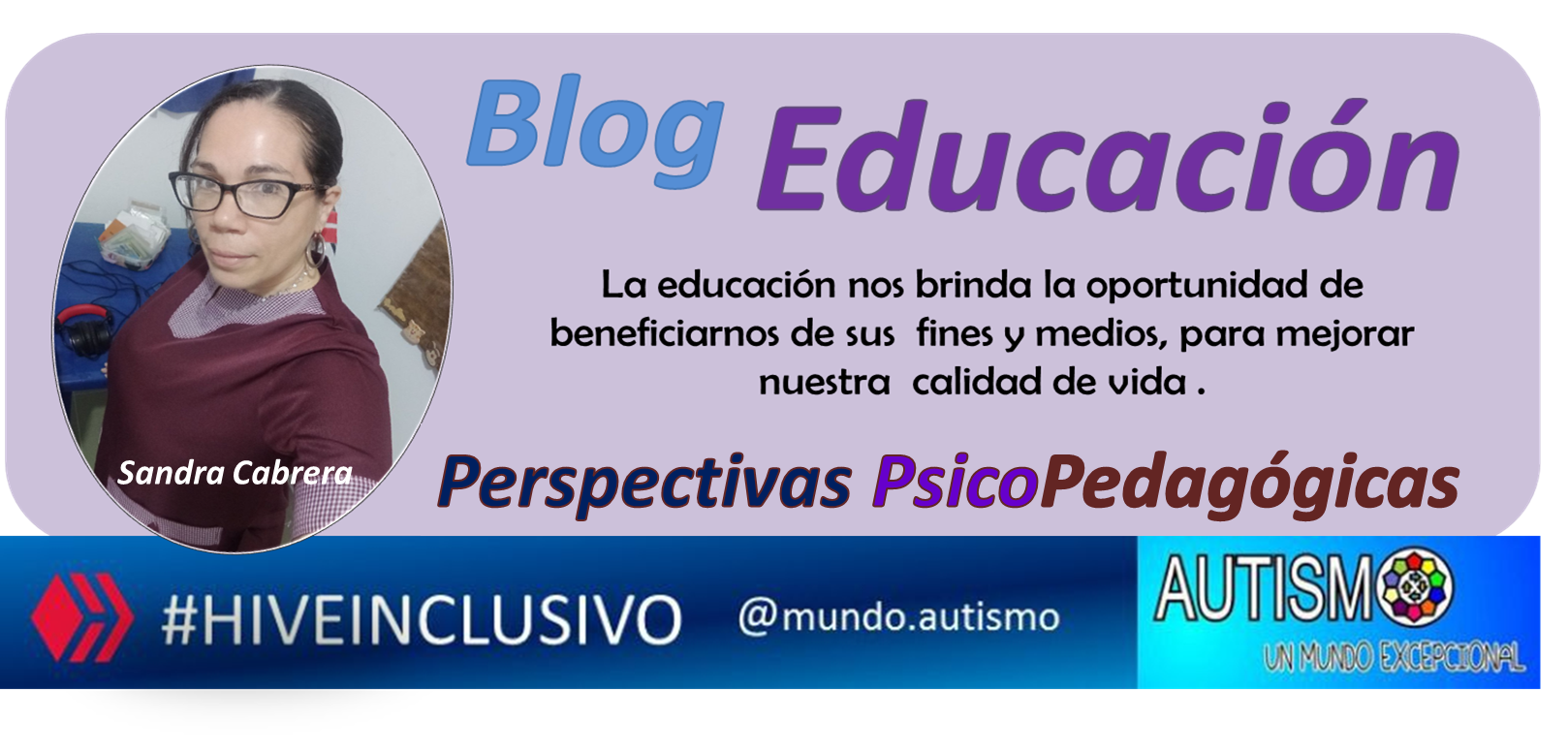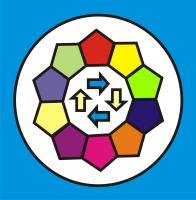>Muchos estudios han demostrado que la autoestima de una persona influye fuertemente en sus relaciones interpersonales, comportamiento y aprendizaje. Y si hablamos de personas con autismo, estas áreas son clave en su desarrollo saludable y en su evolución vital.
[La autoestima de las personas con autismo
]( https://www.fundacionconectea.org/2020/01/24/la-autoestima-de-las-personas-con-autismo/)
______________________________________________
>▶ Many studies have shown that a person's self-esteem strongly influences their interpersonal relationships, behavior, and learning. And when it comes to people with autism, these areas are key to their healthy development and lifespan.
[The Self-Esteem of People with Autism
](https://www.fundacionconectea.org/2020/01/24/la-autoestima-de-las-personas-con-autismo/)
_____________________________________

[Pixabay](https://pixabay.com/es/photos/batman-disfraz-chico-5842738/)
#
**Todos sabemos que una adecuada autoestima forma parte de nuestra salud integral, y que en la medida en que seamos capaces de construirla y mantenerla, nos brindará un piso emocional sustentable y sostenible, que nos ayuda a afianzar y afrontar con mayor seguridad los avatares que nos depara la vida.**
#
___________________________________________
#
▶**We all know that good self-esteem is part of our overall health, and that to the extent that we are able to build and maintain it, it will provide us with a sustainable emotional foundation, helping us strengthen and more confidently face the challenges that life throws at us.**
#

[Pixabay](https://pixabay.com/es/illustrations/ai-generado-superman-superh%C3%A9roe-8369143/)
#
En los niños autistas, la autoestima queda en un estado se suspensión sobre múltiples factores que pueden afectarla, en mayor o menor medida. Los más frecuentes son las constantes comparaciones con los demás niños, sobre todo con la población neurotípica, incluyendo a los hermanos. Tales comparaciones ejercen fuertes demandas emocionales en los niños, que se reflejan en sentimientos de escasa valía, tristeza, mayor aislamiento y dificultades para comunicarse, bajo desempeño escolar, por ejemplo, lo cual conlleva, además, que las personas hagan inadecuadas interpretaciones sobre las conductas. Recordemos que, de hecho, existen [dificultades comunicativas de base en el espectro autista]( https://www.nidcd.nih.gov/es/espanol/problemas-de-comunicacion-en-los-ninos-con-trastornos-del-espectro-autista), dificultando en forma importante expresar cuáles son sus motivaciones internas.
▶ In autistic children, self-esteem is suspended due to multiple factors that can affect it, to a greater or lesser extent. The most common are constant comparisons with other children, especially with the neurotypical population, including siblings. Such comparisons exert strong emotional demands on children, reflected in feelings of low self-worth, sadness, greater isolation, and difficulties communicating—poor academic performance, for example—which also leads people to make inadequate interpretations of behaviors. Let us remember that, in fact, there are [basic communication difficulties in the autism spectrum](https://www.nidcd.nih.gov/es/espanol/problemas-de-comunicacion-en-los-ninos-con-trastornos-del-espectro-autista), making it significantly difficult to express their internal motivations.

Tristemente, no es extraño apuntar que estas confrontaciones pueden darse en el seno de la familia, siendo los padres, inclusive, factores poco favorables, realizando demandas que no favorecen las condiciones de desarrollo con las que el niño crece y que forman parte de su _yo_. Unida a estas exigencias se suman otras situaciones adversas como es el caso del [acoso escolar]( https://upbility.es/blogs/news/acoso-escolar-y-autismo-como-ayudar-a-su-nino-o-nina) o el _[bulling]( https://autismo.org.es/actualidad/noticias/el-335-por-ciento-del-alumnado-con-autismo-no-sabe-identificar-si-es-victima-de-acoso-escolar/)_ . Las dinámicas sociales que se generan influyen en forma negativa no solo sobre la estima personal, sino también sobre el [autoconcepto]( https://psicologiaymente.com/psicologia/autoconcepto) y los [procesos de aprendizaje]( https://dialnet.unirioja.es/servlet/articulo?codigo=5585727).
▶ Sadly, it is not uncommon to note that these confrontations can occur within the family, with parents even being unfavorable factors, making demands that do not favor the developmental conditions with which the child grows up and that are part of his _self_. In addition to these demands, there are other adverse situations such as [bullying](https://upbility.es/blogs/news/acoso-escolar-y-autismo-como-ayudar-a-su-nino-o-nina) or _[bullying](https://autismo.org.es/actualidad/noticias/el-335-por-ciento-del-alumnado-con-autismo-no-sabe-identificar-si-es-victima-de-acoso-escolar/)_. The social dynamics that are generated negatively influence not only personal esteem, but also [self-concept](https://psicologiaymente.com/psicologia/autoconcepto) and [learning processes](https://dialnet.unirioja.es/servlet/articulo?codigo=5585727).

[Pixabay](https://pixabay.com/es/illustrations/kid-disfraz-incre%C3%ADble-vengadores-7498789/)

En el artículo, [Comprender la baja autoestima de las personas autistas]( https://paautism.org/resource/understanding-low-self-esteem/), aunque no es una referencia especial a la infancia, nos advierten sobre algunas de las principales causas que influyen negativamente, así como algunas propuestas para fortalece la estima propia.
#
• >Padres que critican constantemente o imponen estándares de comportamiento excesivamente altos.
• Pérdida de la infancia debido a la pérdida de personas importantes.
• Experiencias de abuso, más si fue perpetrado por un familiar.
• Padres sobreprotectores, haciendo sentir al niño que no es capaz de atender sus propias necesidades.
• Negligencia parental, padres preocupados por sí mismos.
• Consumo de sustancias por parte de los padres, crean una atmósfera familiar caótica.
• Experiencias negativas de los compañeros, experiencias de acoso y/o exclusión.
• Estigmas y estereotipos sobre el autismo, pueden hacer que la persona se sienta menos segura de sí misma.
• Problemas de salud mental, incluyen ansiedad y depresión.
•
[Comprender la baja autoestima de las personas autistas]( https://paautism.org/resource/understanding-low-self-esteem/).
▶ In the article, [Understanding Low Self-Esteem in Autistic People](https://paautism.org/resource/understanding-low-self-esteem/), although it doesn't specifically address childhood, they warn us about some of the main causes that negatively influence it, as well as some suggestions for strengthening self-esteem.
#
• Parents who constantly criticize or impose excessively high standards of behavior.
• Loss of childhood due to the loss of important people.
• Experiences of abuse, especially if perpetrated by a family member.
• Overprotective parents, making the child feel incapable of meeting their own needs.
• Parental neglect, parents preoccupied with themselves.
• Parental substance use, creating a chaotic family atmosphere.
• Negative experiences with peers, bullying, and/or exclusion.
• Stigmas and stereotypes about autism can make the person feel less self-confident.
• Mental health issues, including anxiety and depression.
•
[Understanding Low Self-Esteem in Autistic People](https://paautism.org/resource/understanding-low-self-esteem/

Igualmente, en el referido artículo, se plantean alternativas para mejorar la autoestima:
#
• >Reconocer las fortalezas en los niños.
• Desarrollar habilidades y destrezas a través de las actividades físicas, la recreación, pasatiempos e intereses.
• Identificar e incorporar valores en la vida de los niños, hacer de ellos un hábito de vida.
• Ayudarlos a establecer metas, que conlleven a consolidar sus logros.
[Comprender la baja autoestima de las personas autistas]( https://paautism.org/resource/understanding-low-self-esteem/).
#
Sabemos que los niños están sujetos a factores ambientales y culturales que ejercen una influencia directa sobre sus condiciones de neurodesarrollo. De hecho, la inevitabilidad de los acontecimientos es la característica ordinaria de nuestro día a día. No podemos proteger a los niños de las condiciones adversas que se le presentan, y que, de hecho, son experiencias de vida críticas para su desarrollo integral.
▶ Likewise, the aforementioned article suggests alternatives for improving self-esteem:
#
• >Recognize children's strengths.
• Develop skills and abilities through physical activities, recreation, hobbies, and interests.
• Identify and incorporate values into children's lives, making them a lifelong habit.
• Help them set goals that lead to consolidating their achievements.
[Understanding Low Self-Esteem in Autistic People](https://paautism.org/resource/understanding-low-self-esteem/).
#
We know that children are subject to environmental and cultural factors that directly influence their neurodevelopmental conditions. In fact, the inevitability of events is an ordinary feature of our daily lives. We cannot protect children from the adverse conditions that arise, which, in fact, are critical life experiences for their overall development.

[Pixabay](https://pixabay.com/es/illustrations/ai-generado-superh%C3%A9roe-h%C3%A9roe-7977051/)
__________________________________
Lo importante es que entendamos, que no se trata de proteger ni de colocar filtros a las experiencias de los niños. Estamos convocando a una toma de conciencia a través de la educación y de retomar nuestra condición de seres humanos inteligentes, empáticos y sobre todo conscientes de que proteger la infancia genera futuro, progreso y la concreción de proyectos de vida que van a contribuir al bienestar social y el avance de los principio éticos como rectores en la toma de decisiones que con los años ejercerán una influencia indefectiblemente positiva en la convivencia.
▶ The important thing is that we understand that this is not about protecting or placing filters on children's experiences. We are calling for awareness through education and for reclaiming our status as intelligent, empathetic human beings, and above all, aware that protecting children generates a future, progress, and the realization of life projects that will contribute to social well-being and the advancement of ethical principles as guiding principles for decision-making that, over the years, will have an unfailingly positive influence on coexistence.

#
**Espero que esta información te haya parecido interesante y sobre todo útil. Si gustas, ayúdanos a compartir.** **Saludos y hasta una próxima oportunidad, en esta columna sobre _Perspectivas Psicopedagógicas.**
▶**I hope you found this information interesting and, above all, useful. If you like, please help us share it.** **Greetings and until next time, in this column on _Psychopedagogical Perspectives._.**


#
▶ For English translations, I use Google and also the free version of DeepL. When the images aren't my own, taken with my Redmi 11 camera, I use them from Pixabay.com, which is free to use.
Para las traducciones al inglés, utilizo Google y también DeepL, versión libre. Cuando las imágenes no son de mi propiedad, tomadas con la cámara de mi teléfono Redmi11, las tomo de Pixabay.com, de libre uso.
#

#
_Soy Sandra Cabrera, licenciada en Dificultades para el Aprendizaje, con estudios de postgrado en Educación Especial Integral, Planificación Educativa y Literatura Infantil. Si te interesan los temas sobre educación especial, la discapacidad y las condiciones especiales del desarrollo, puedes contactarme a través de los números 04128032993 y 0412 8333334 y en:
El canal de [Telegram](t.me/unencumana), Trastornos del Aprendizaje.
En las redes sociales [Instagram](https://www.instagram.com/sandrancabrera/) y [Facebook1](sandracabrerapsicopedagoga) y [Facebook2](https://www.facebook.com/difespaprend). Sandra Cabrera Psicopedagoga.
En la cuenta de [spreaker](https://www.spreaker.com/cms/shows/6120037/dashboard?filter=NETWORK&network=17281862), @sandracabrerapodcast._
#
_▶I am Sandra Cabrera, a graduate in Learning Disabilities, with postgraduate studies in Comprehensive Special Education, Educational Planning, and Children's Literature. If you are interested in topics related to special education, disabilities, and special developmental conditions, you can contact me at 04128032993 and 0412 8333334, and at:
The [Telegram](t.me/unencumana) Learning Disabilities channel.
On social media: [Instagram](https://www.instagram.com/sandrancabrera/) and [Facebook1](sandracabrerapsicopedagoga) and [Facebook2](https://www.facebook.com/difespaprend). Sandra Cabrera, Psychopedagogue.
On the [spreaker](https://www.spreaker.com/cms/shows/6120037/dashboard?filter=NETWORK&network=17281862) account, @sandracabrerapodcast._

#
#
#### Acompáñanos, suscribiéndote a [Mundo Autismo](https://peakd.com/c/hive-125730/about)/Join us by subscribing to [Mundo Autismo](https://peakd.com/c/hive-125730/about)

#### Y sé parte de _un mundo excepcional,_ donde tendrás la oportunidad de informarte e interactuar./And be part of _an exceptional world,_ where you will have the opportunity to learn and interact.
#
##### Nos encuentras en:/You can find us at:
#
### [X]( https://x.com/MundoAutismo_?t=WCw4upvC68Z9sOO2ZTLHaA&s=09)

#
### [Facebook](https://www.facebook.com/Autismo.MundoExcepcional/)

## Apoya a [@aliento](https://vote.hive.uno/@aliento) como Testigo./Support [@aliento](https://vote.hive.uno/@aliento) as a Witness

#
Fuentes de las imágenes:
[Logo propiedad de la comunidad @mundo.autismo](https://peakd.com/c/hive-125730/created)
[Logo propiedad de la Comunidad @aliento](https://peakd.com/@aliento)
[Logo X, editado en PowerPoint, Pixabay](https://pixabay.com/vectors/x-internet-new-web-icon-website-8229321/)
[Logo Facebook editado en PowerPoint, Pixabay](https://pixabay.com/es/illustrations/facebook-logo-sitio-web-social-6280066/)
________
Image sources:
[Logo owned by the @mundo.autismo community](https://peakd.com/c/hive-125730/created)
[Logo owned by the @aliento Community](https://peakd.com/@aliento)
[X logo, edited in PowerPoint, Pixabay](https://pixabay.com/vectors/x-internet-new-web-icon-website-8229321/)
[Facebook logo edited in PowerPoint, Pixabay](https://pixabay.com/es/illustrations/facebook-logo-sitio-web-social-6280066/)